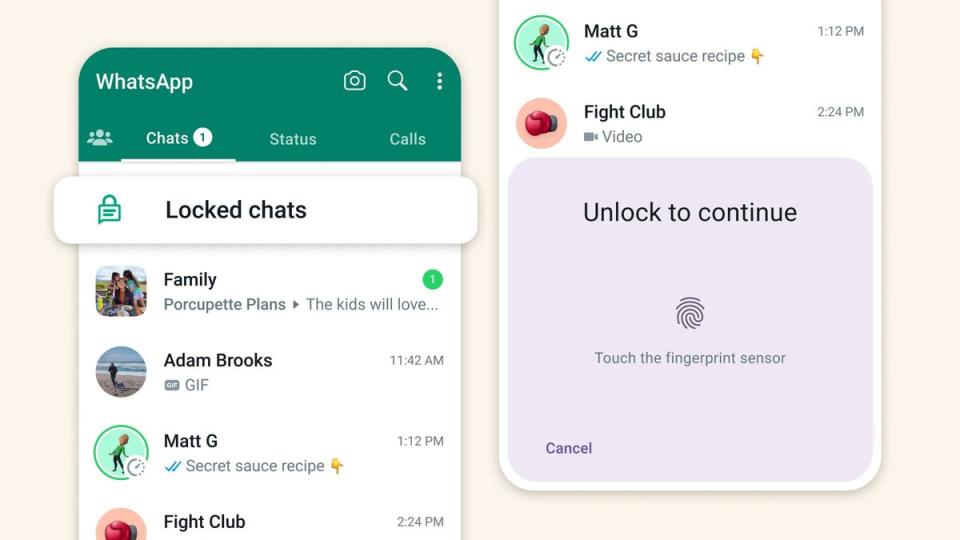Major WhatsApp update enables secret chats

WhatsApp has unveiled a major update that will allow users to hide intimate conversations in a secret folder.
The Chat Lock feature, which parent company Meta announced on Monday, means selected messages can only be accessed with a password or biometric identification, like a fingerprint or face scan.
Any incoming messages will also be hidden on the receiver’s phone or computer screen to prevent bystanders from seeing what they say or who they are from.
“We believe this feature will be great for people who share their phones from time to time with a family member, or in moments where someone else is holding your phone at the exact moment an extra-special chat arrives,” Meta wrote in a blog post announcing the WhatsApp update.
“Over the next few months, we’re going to be adding more options for Chat Lock, including locks for companion devices and creating a custom password for your chats so that you can use a unique password different from your phone’s.”
The new WhatsApp feature will be rolling out globally this week to more than 2 billion people who use the messaging app.
“New locked chats in WhatsApp make your conversations more private,” Meta boss Mark Zuckerberg wrote in a post on Facebook.
“They’re hidden in a password protected folder and notifications won’t show sender or message content.”

The latest update comes just days after widespread concerns emerged from WhatsApp users about a “creepy” feature relating to the app’s privacy settings.
Messages on people’s phones appeared to show that WhatsApp was listening to users while they were asleep, with notifications of the app activating the device’s microphone displayed on the privacy menu within Google’s Android operating system.
WhatsApp blamed the issue on a bug within Android, claiming it would never access a user’s microphone without their consent.
“Users have full control over their mic settings,” WhatsApp posted in response to a tweet about the issue.
“Once granted permission, WhatsApp only accesses the mic when a user is making a call or recording a voice note or video – and even then, these communications are protected by end-to-end encryption so WhatsApp cannot hear them.”


